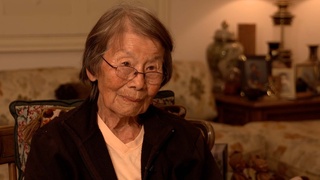Interviews
Father owned a café in Minot, North Dakota
My father operate the restaurant, US Café, and - which is located right near city of Minot railroad station - and I was told, when a train stops and people are making connection, perhaps or something, they still have to get to eat or bite to eat or something, the restaurant sold very, pretty good food, I understand and then so the train people make effort to come, get out of the train and have [a] meal. The restaurant operate 24 hours, and so it was pretty busy, yes, and with a partner, Mister Toyama, and my father. And I know they worked very, very hard yes, very, very hard.
But, US Café, I don’t know it must have…they have history because, you know I happened to visit Minot, North Dakota in 1995 and at the motel, I happened to ask one of the lady doing some cleaning work in the front and we start talking, and I said hey, by the way, I’m from Los Angeles but, I used to live here. And oh, I happened to mention my father used to run the US Café, and she said, oh - I know, I remember, I remember. And so the old timer, we know. I have a little picture of the front that I can show you later. Right now that restaurant is gone and the building is converted into [an] office building.
Date: June 17, 2008
Location: California, US
Interviewer: Janice Tanaka
Contributed by: Watase Media Arts Center, Japanese American National Museum

